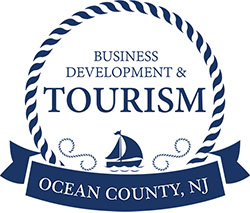FREEHOLDERS OPPOSE YET ANOTHER PLAN BY STATE LEADERS TO INCREASE THE GASOLINE TAX
LIKE A BAD PENNY, or in this case two pennies, another hike in the state’s gasoline tax could soon be burdening local motorists, thanks to Trenton lawmakers.
“Here we go again,” said Freeholder Director Gerry P. Little. “This Board of Freeholders will vehemently oppose an additional increase in the gasoline tax, as we did two years ago when Trenton hiked the tax by 23 cents per gallon.”
With revenue from that original increase falling short of predictions, state leaders are now floating the idea of another tax hike of two or more cents per gallon.
Freeholder Joseph H. Vicari, liaison to Tourism, voiced concern that the higher tax could impact the number of visitors driving to Ocean County and the Jersey Shore.
“We are doing all we can to attract visitors, while an increase in the gas tax threatens to keep people away,” Vicari said.
Vicari said Ocean County has yet to see any promised benefits from the earlier gas tax increase.
“We’ve seen no progress on the widening of Route 9,” Vicari said. “The Route 166 project in Toms River continues to drag on with no end in sight. When the state finally decided to rebuild the Mathis Bridge they simply replaced the drawbridge with another drawbridge instead of building a higher span that wouldn’t delay traffic.”
The higher tax is also a burden on local residents, he added. “We’ve said it time and time again, these increases in the gas tax are especially unfair to Ocean County residents, who have some of the longest commuting distances in New Jersey,” said Freeholder Joseph H. Vicari.
Vicari pointed to federal census statistics that show more than 108,000 Ocean County residents commute 30 minutes or more to work. More than 90,000 people travel outside of the county to reach their workplace.
Additionally, more than 82 percent of local commuters use their own private vehicle. Only 2 percent rely of public transportation.
“This is a far cry from Northern New Jersey Counties that are served by numerous bus, train and light rail line,” Vicari said. “The gas tax is unfair to Ocean County residents who have no other choice than to drive to work.” The percentage of county residents that use public transportation is only slightly higher than those employees who walk to work, which is just 1 percent of the total workforce.
“Ocean County drivers already pay the most in gasoline and tolls because they have the longest commutes in the state,” Vicari said. “This latest proposal will only add to their burden.”



